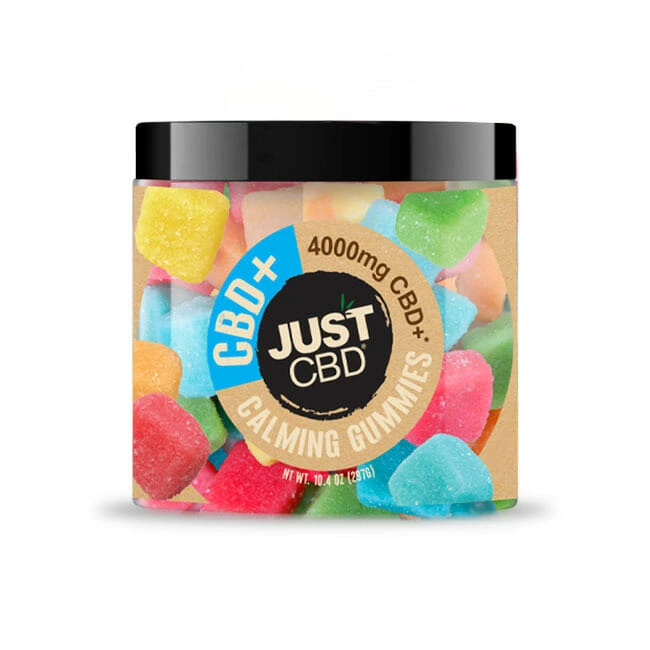Are CBD Gummies Addictive Or Habit-Forming?
The Nature of Addiction
Addiction, a complex and multifaceted condition, arises when substance use becomes compulsive and harmful despite negative consequences. This often involves alterations in brain circuitry, leading to intense cravings, withdrawal symptoms, and difficulty controlling intake. Understanding the nature of addiction is crucial for addressing the growing concern of substance misuse, particularly as novel substances like CBD gummies gain popularity.
Defining Addiction
Addiction is characterized by a pattern of compulsive drug seeking and use despite harmful consequences. It involves changes in brain structure and function that lead to intense cravings, withdrawal symptoms, and an inability to control drug intake.
The addictive process is complex and influenced by various factors, including genetics, environment, and individual experiences. While some individuals may experience addictive tendencies more readily than others, any substance with the potential to alter brain chemistry can contribute to addiction when misused.
Psychological vs. Physiological Dependence
Addiction is a complex condition involving both psychological and physiological dependence. Psychological dependence refers to the emotional or mental craving for a substance, often linked to feelings of comfort, relaxation, or euphoria associated with its use. Physiological dependence, on the other hand, involves physical changes in the body that occur after repeated exposure to a substance. This leads to tolerance, where larger doses are needed to achieve the same effect, and withdrawal symptoms when the substance is discontinued.
CBD gummies, like many substances, have the potential to induce both psychological and physiological dependence, although research on their addictive properties is still limited. While CBD itself is generally considered non-addictive, certain ingredients or additives in CBD gummies could contribute to potential addictive behaviors. It’s important to note that individual responses to substances vary widely, and factors such as dosage, frequency of use, and pre-existing vulnerabilities can influence the likelihood of dependence.
CBD and Its Effects on the Brain
Cannabidiol (CBD) is a non-psychoactive compound found in cannabis plants. Unlike its counterpart THC, CBD does not produce intoxicating effects. Instead, it interacts with the endocannabinoid system, a complex network of receptors and neurotransmitters in the brain that plays a role in regulating various functions such as mood, appetite, sleep, and pain perception. CBD has gained popularity for its potential therapeutic benefits, including reducing anxiety, alleviating chronic pain, and promoting relaxation.
Mechanism of Action
CBD exerts its effects by interacting with the endocannabinoid system (ECS). The ECS is a crucial regulatory system in the body, involved in maintaining homeostasis and influencing a wide range of physiological processes. It consists of cannabinoid receptors (CB1 and CB2), which are found throughout the brain and body, and endocannabinoids, naturally produced molecules that bind to these receptors.
CBD primarily acts as a modulator of the ECS. It does not directly activate CB1 or CB2 receptors like THC does. Instead, CBD influences their activity indirectly by:
• Binding to and modulating the function of other proteins involved in ECS signaling pathways.
This modulation can lead to various effects on brain function, including reducing anxiety by influencing serotonin release, alleviating pain by interacting with pain signal pathways, and promoting relaxation through its influence on GABAergic neurotransmission.

Potential for Dopamine Release
While research on CBD’s effects on the brain is ongoing, there is some evidence suggesting it may indirectly influence dopamine release. Dopamine is a neurotransmitter associated with reward and pleasure, and its dysregulation is implicated in addiction.
CBD is thought to modulate the activity of various neurotransmitters, including serotonin and GABA, which can indirectly affect dopamine pathways. However, there’s no direct evidence that CBD directly stimulates dopamine release like some addictive substances do.
Research on CBD’s Addictive Potential
The potential for addiction with CBD gummies is a growing area of concern as their popularity increases. While CBD itself is generally considered non-addictive, the presence of other ingredients or additives in these gummies could contribute to addictive behaviors. Further research is needed to fully understand the long-term effects of CBD gummies on the brain and the potential for dependence.
Clinical Studies and Findings
The question of whether CBD gummies are addictive or habit-forming is a complex one that requires careful consideration. While CBD itself is generally considered non-addictive, the presence of other ingredients in these gummies could potentially contribute to addictive behaviors.
- Research on the addictive potential of CBD is still limited.
- CBD’s primary interaction with the body is through the endocannabinoid system (ECS), which regulates various functions including mood, appetite, and pain perception.
- While CBD can influence neurotransmitters associated with reward and pleasure, there’s no evidence suggesting it directly stimulates dopamine release like addictive substances do.
- The potential for addiction with CBD gummies is a growing area of concern, particularly regarding the presence of added sugars, artificial flavors, or other ingredients that may contribute to addictive behaviors.
More research is needed to fully understand the long-term effects of CBD gummies on the brain and the potential for dependence.
Animal Studies
Animal studies have been crucial in exploring the potential addictive properties of cannabinoids, including CBD. These studies often involve administering different doses of CBD to rodents and observing their behavior for signs of addiction-like responses.
Some research suggests that CBD might actually counteract some of the addictive effects associated with THC, the psychoactive component of cannabis. For example, studies have shown that CBD can reduce THC-induced reward seeking and withdrawal symptoms in animal models.
However, it’s important to note that animal studies do not always directly translate to human experiences. While they provide valuable insights into potential mechanisms of addiction, further research is needed to fully understand the addictive potential of CBD in humans.
Factors Influencing Addiction Risk
Addiction, a complex condition characterized by compulsive substance use despite negative consequences, arises from alterations in brain circuitry leading to intense cravings and withdrawal symptoms. Various factors influence an individual’s risk for addiction, including genetics, environment, and personal experiences.
Dosage and Frequency of Use
Factors influencing addiction risk, dosage, and frequency of use are multifaceted and complex. Genetics play a significant role, with some individuals genetically predisposed to addiction. Environmental factors like stress, trauma, and social influences can also contribute. Personal experiences, such as early exposure to substances or history of mental health issues, can increase vulnerability to addiction.
Dosage and frequency of use are crucial determinants of addiction risk. Higher doses and more frequent use elevate the likelihood of dependence. Regular substance use overwhelms the brain’s reward system, leading to tolerance and cravings. Individuals with pre-existing vulnerabilities or a history of substance abuse may be particularly susceptible to developing dependence at lower doses and frequencies.
The nature of the substance itself also plays a role. Some substances have a higher addictive potential due to their chemical properties and how they interact with the brain’s reward system. Substances that quickly cross the blood-brain barrier, induce intense euphoria, or cause rapid withdrawal symptoms are generally considered more addictive.
Individual Genetic Predisposition
Addiction, a complex condition characterized by compulsive substance use despite negative consequences, arises from alterations in brain circuitry leading to intense cravings and withdrawal symptoms. Various factors influence an individual’s risk for addiction, including genetics, environment, and personal experiences.

- Genetic Predisposition: Research suggests that individuals with a family history of addiction may be genetically predisposed to developing substance use disorders. Specific genes have been identified that appear to influence vulnerability to addiction.
- Environmental Factors: The environment plays a significant role in shaping addiction risk. Exposure to drugs and alcohol at a young age, experiencing trauma or stress, and having social circles that promote substance use can increase vulnerability.
- Personal Experiences: Individual experiences, such as early exposure to substances, history of mental health issues, and coping mechanisms used to deal with stress, can contribute to addiction risk.
Understanding these factors is crucial for developing effective prevention and treatment strategies for substance use disorders.
Underlying Mental Health Conditions
Addiction is a complex condition influenced by a multitude of factors. Underlying mental health conditions can significantly impact an individual’s vulnerability to addiction.
Mental health disorders like anxiety, depression, trauma, and personality disorders can co-occur with substance use disorders. These conditions often share common underlying neurobiological mechanisms and can exacerbate each other.
Individuals struggling with mental health issues may turn to substances as a way to self-medicate, seeking relief from distressing symptoms. Substance use can provide temporary escape or altered states of consciousness that seem to alleviate emotional pain, but it ultimately worsens the underlying condition in the long run.
The interplay between mental health and addiction is complex and often cyclical. For instance, a person with anxiety might develop a dependence on alcohol to manage their symptoms. This dependence can then contribute to worsening anxiety, leading to an increased reliance on alcohol, perpetuating a vicious cycle.
Addressing both the mental health condition and the substance use disorder is crucial for successful recovery. Comprehensive treatment approaches that combine therapy, medication management, and support groups are essential in breaking this cycle.
CBD Interactions and Other Substances
CBD, while generally considered non-addictive, has the potential to interact with other substances in complex ways that could influence addictive behaviors. Understanding these interactions is crucial for assessing the overall risk of addiction associated with CBD products, particularly gummies containing added ingredients beyond pure CBD.
Potential for Synergistic Effects
CBD can interact with various substances, including medications, supplements, and even food. These interactions can potentially alter how CBD is metabolized or affect its effects on the body. Some interactions may increase the risk of side effects or reduce CBD’s effectiveness. It’s essential to consult a healthcare professional before using CBD alongside other substances to ensure safety.
The potential for synergistic effects with other substances is a complex area, and research is ongoing. Some studies suggest that certain combinations of CBD with other compounds may enhance specific therapeutic benefits, while others might lead to unpredictable outcomes. For example, CBD has been shown to potentially interact with certain medications metabolized by the same enzymes in the liver.
It’s important to note that individual responses to substances vary greatly, and factors like dosage, frequency of use, and individual metabolism play a role in determining potential interactions and effects.
When considering CBD gummies, it’s crucial to be aware of the added ingredients. Some gummies may contain sugars, artificial flavors, or other additives that could contribute to addictive behaviors or interact with existing health conditions.
Legal and Regulatory Considerations
Legal and regulatory considerations surrounding CBD gummies are evolving rapidly due to their increasing popularity and diverse applications. The legal status of CBD varies significantly depending on the jurisdiction and specific regulations in place.
In some countries, CBD is legal for all uses, while in others it may be restricted or prohibited entirely. Even within countries where CBD is legal, there can be variations in regulations regarding its production, sale, and consumption.
Federal laws often differ from state or local regulations. For example, in the United States, while the 2018 Farm Bill legalized hemp-derived CBD products with less than 0.3% THC at the federal level, individual states may have their own specific rules and restrictions.
Understanding the legal framework surrounding CBD in a particular location is crucial for manufacturers, retailers, and consumers alike. Compliance with relevant laws and regulations is essential to avoid legal issues and ensure product safety.
Regulatory agencies such as the Food and Drug Administration (FDA) in the United States play a vital role in overseeing the production, labeling, and marketing of CBD products. The FDA has issued warnings against companies making unsubstantiated health claims about CBD and is working to establish clear guidelines for its use.
The evolving legal and regulatory landscape surrounding CBD highlights the need for continued research, education, and open communication among stakeholders to ensure responsible and safe use of this increasingly popular substance.
Buy CBD Gummies to improve sleep quality
Grab cbd sweets by JustCBD
Carmen Alexandra
Crunchy Jewels

